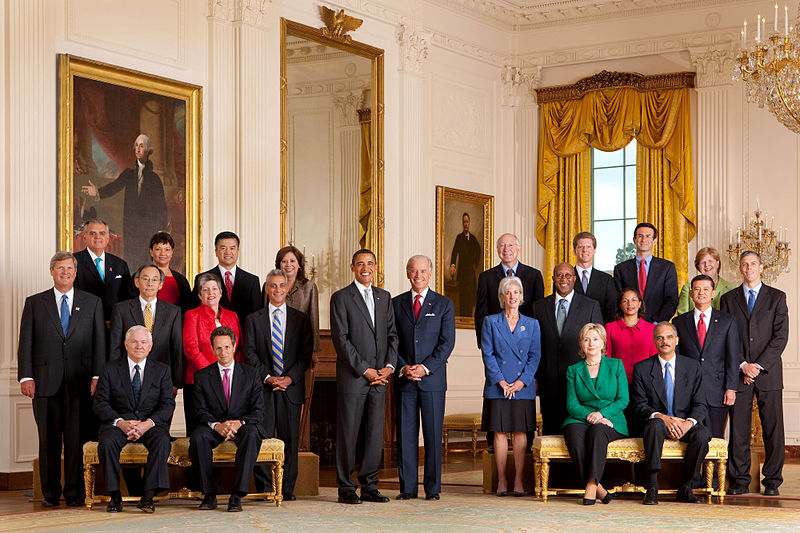
Suplemento educativo
Preguntas de educación cívica del examen para la naturalización, parte 3
Civics Questions for the US Naturalization Test - Part 3
Por Estela González Torres
June 2015El examen de educación cívica es oral y solo incluye 10 de las 100 preguntas de educación cívica. Para aprobar, debe contestar bien un mínimo de 6 preguntas, siempre seguidas del nombre del oficial de USCIS (U.S. Citizenship and Immigration Services) que lo entreviste. En esta tercera entrega, seguimos con el segundo subtema dentro del gobierno estadounidense, el sistema de gobierno. Terminaremos esta sección en el próximo número. Recuerde que si tiene 65 años o más y es residente legal permanente de EE.UU. desde hace 20 años o más, solo necesitará estudiar las preguntas marcadas con un asterisco (*).
AMERICAN GOVERNMENT
B: System of Government
25. Why do some states have more Representatives than other states?
- (because of) the state’s population /(because) they have more people/ (because) some states have more people
In the House of Representatives, a state’s population determines the number of representatives it has. In this way, states with many people have a stronger voice in the House.
26. We elect a President for how many years?
▪ four (4)
Early American leaders decided that the people would elect the president every four years.
27. In what month do we vote for President?*
▪ November
In 1845, Congress passed legislation to designate a single day for all Americans to vote. It made Election Day the Tuesday after the first Monday in November.
28. What is the name of the President of the United States now?*
▪ Barack Obama / Obama
Barack Obama is the 44th president of the United States. After winning the presidential election of 2008, he became the first African American president of the United States. He won a second term in 2012.
29. What is the name of the Vice President of the United States now?
▪ Joseph R. Biden, Jr. / Joe Biden / Biden
30. If the President can no longer serve, who becomes President?
▪ the Vice President
If the president dies, resigns, or cannot work while still in office, the vice president becomes president.
31. If both the President and the Vice President can no longer serve, who becomes President?
▪ the Speaker of the House
32. Who is the Commander in Chief of the military?
▪ the President
The Founding Fathers made the president the commander in chief because they did not want a professional military leader, but a civilian selected by the people.
33. Who signs bills to become laws?
▪ the President
After debate in both houses of Congress, if a majority of both the Senate and House vote to pass the bill, it goes to the president. If the president wants the bill to become law, he signs it.
34. Who vetoes bills?
▪ the President
If the president does not want the bill to become law, he vetoes it.
35. What does the President’s Cabinet do?
▪ advises the President
The Constitution says that the leaders of the executive departments should advise the president. These department leaders, most of them called “secretaries,” make up the cabinet. The president nominates the cabinet members to be his advisors.
36. What are two Cabinet-level positions?
▪ Secretary of Agriculture
▪ Secretary of Commerce
▪ Secretary of Defense
▪ Secretary of Education
▪ Secretary of Energy
▪ Secretary of Health and Human Services
▪ Secretary of Homeland Security
▪ Secretary of Housing and Urban Development
▪ Secretary of the Interior
▪ Secretary of Labor
▪ Secretary of State
▪ Secretary of Transportation
▪ Secretary of the Treasury
▪ Secretary of Veterans Affairs
▪ Attorney General
▪ Vice President
The people on the president’s cabinet are the vice president and the heads of the 15 executive departments.
Vocabulario útil
advise [adváis] aconsejar, dar consejos
Attorney General [atórni] Procurador General, Fiscal General
become [bicom] volverse, convertirse en
bill [bill] proyecto de ley
Cabinet [cábinet] el Gabinete (del Presidente, conformado por los ministros)
Commander in Chief [cómander in chif] Comandante en Jefe
civilian [sivílian] civil
development [divélopment] desarrollo
early [érli] temprano
health [jélz] salud
Homeland Security [jómland seciuriti] Seguridad Nacional
labor [léibor] trabajo
law [lóo] ley
leader [líder] líder
no longer [no longuer] ya no
pass [pass] aprobar
population [popiuleichon] población
resign [risáin] renunciar, dimitir
serve [serf] servir, cumplir funciones
sign [sáin] firmar
single [síngol] único, solo
stronger [strónguer] más fuerte
term [térm] término, periodo
The Military [mílitri] Las Fuerzas Armadas
treasury [tréshori] Tesoro (Hacienda)
veto [vítou] vetar
voice [vóis] voz
For more study materials and information, please visit:
http://www.uscis.gov/citizenship/learners/study-test
COPYRIGHT 2015
La Voz, Cultura y noticias hispanas del Valle de Hudson
La Voz, Cultura y noticias hispanas del Valle de Hudson
Comments | |
|
Comentario: Hola ! Ayer presente mi examen de ciudadanía y lo pase. La ceremonia
será el 24 de July .Estoy muy feliz ! Posted: 6/2/2015 |
|

